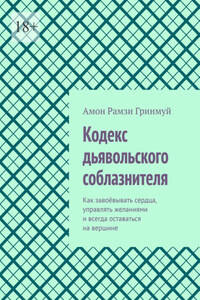Introduction
The word itself (term) "morality" goes back to the Latin word "mores", which can be translated as "temper", "custom", "character". In this regard, the word "morality" is a kind of tracing paper of the word "morality". And it is no coincidence that both in everyday communication and in scientific literature, the words "morality" and "morality" are used as synonyms.
Morality is a rather complex phenomenon. Consideration of various facets of this phenomenon will be carried out throughout the course. Now we will try to give the very first, largely preliminary concept of morality in order to have some initial positions for the analysis of subsequent issues.
In everyday life, and sometimes in journalism, in popular literature, morality is understood as a set of rules, norms of behavior that regulate and direct people's actions. But such a definition reveals the specifics of morality, because law, sanitation requirements, safety regulations, etc. can be characterized in the same way. Therefore, first of all it is necessary to highlight the specifics of moral norms. The peculiarity of morality lies in the fact that its prescriptions are universal, universal in nature and are applicable in a variety of life situations. Almost everywhere where a person lives and acts. The latter cannot be said, for example, about the norms of law, the competence of which does not include a fairly wide range of actions (for example, being late for a lecture, tactlessness, etc.). Secondly, moral norms are based on the authority of public opinion and on the moral beliefs of an individual. It should be noted that there are quite a lot of moral norms: from the simplest, requiring delicate treatment of others to norms, extremely generalized, norms-principles – respect your elders, do not kill, do not steal, etc.
The Essence of morality
It should be emphasized that it is the highest values: goodness, justice, love that fill our daily life with fullness and spirituality, with a special meaning. An individual, with limited aspirations, and even a criminal can be polite. But only the person who measures his actions and thoughts with the highest values is able to lead a full-blooded, highly moral life. What is spirituality, which has been talked about a lot lately? Perhaps this problem was most clearly posed by Christianity, which, as a rule, speaks of a three-part human structure: body, soul and spirit. The soul often "serves" the body, is focused on earthly joys, the joys of communication with nature, other people (soulfulness). The spirit is always directed to God, to the Highest. In a true believer, religious preachers believe, the spirit dominates both the soul and the body. If the arguments of theologians are "translated" into secular language, then spirituality should be understood as a person's desire to correlate his finite existence in time and space with Eternity, to go beyond the boundaries of his being. It is these aspirations that fill moral life with high meaning, and morality itself is taken out of the framework of simplified concepts, and protects it from being reduced to a set of simple rules of behavior.










